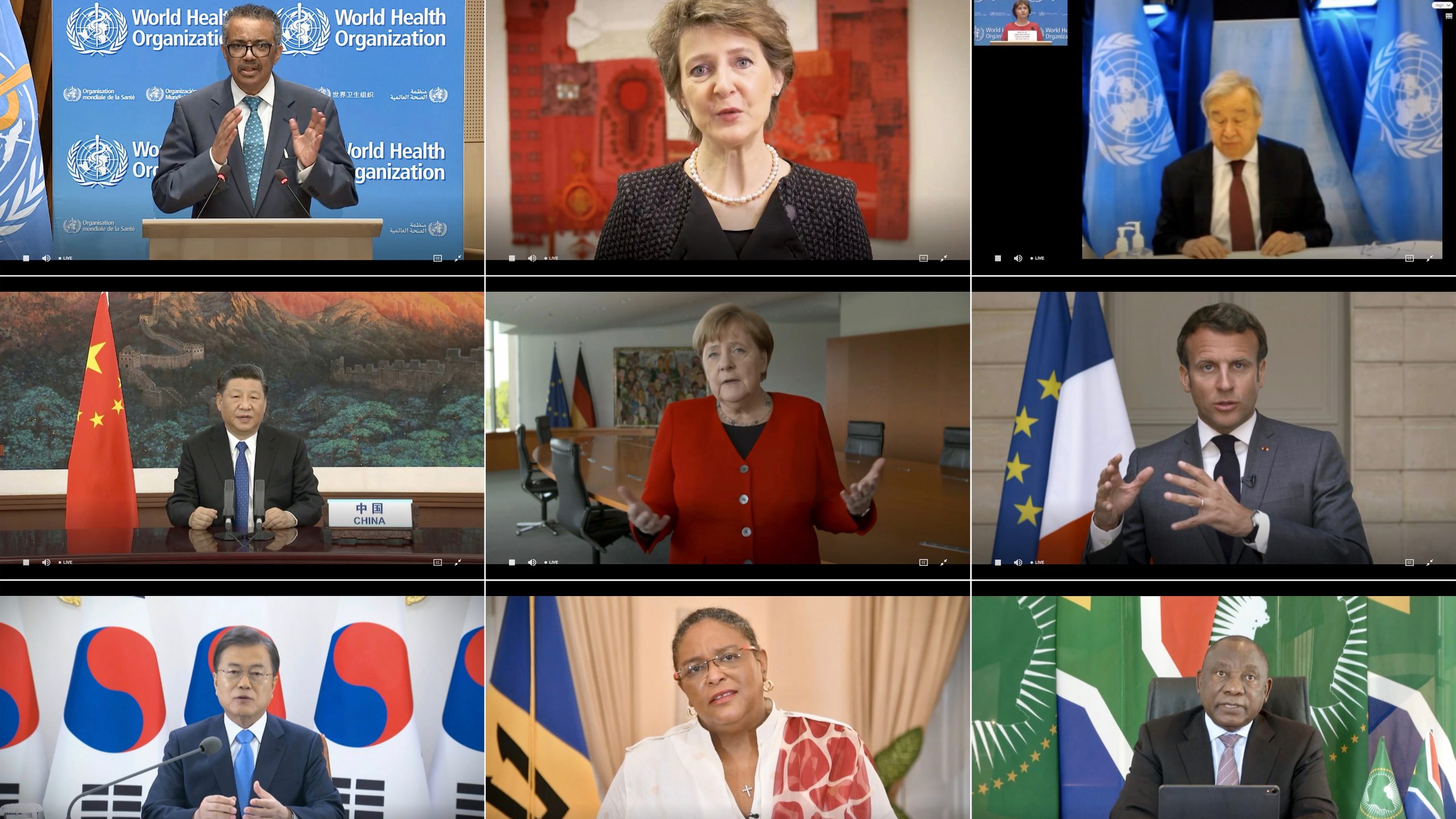The 73rd session of the World Health Assembly (WHA) that concluded on May 19, Tuesday, unanimously passed a resolution for a global investigation into the COVID-19 pandemic. The resolution for an investigation was drafted by the European Union and co-sponsored by 64 member nations of the World Health Organization (WHO).
The WHA is the governing body of the World Health Organization and outlines its agenda and policy framework annually through a resolution arrived at via consensus. This year, the assembly was conducted virtually for the first time in light of the COVID-19 pandemic.
The WHA73 resolution calls for an “impartial, independent and comprehensive” evaluation into the international response to the pandemic, coordinated by the WHO. It also asks the WHO to “identify the zoonotic source of the virus and the route of introduction to the human population, including the possible role of intermediate hosts, including through efforts such as scientific and collaborative field missions, which will enable targeted interventions and a research agenda to reduce the risk of similar events.”
WHO director-general Tedros Adhanom Ghebreyesus supported the resolution. He said, “I will initiate an independent evaluation at the earliest appropriate moment to review experience gained and lessons learned to make recommendations to improve national and global pandemic preparedness and response.”
Anti-China blame game
However, despite the neutral line of the resolution and its unanimous backing – from not only China but also the WHO director-general – the anti-China blame-game continues. Australia has deemed the resolution as a “vindication” of sorts for its proposal for an investigation into the role played by China in the virus spread.
China hit back against the misguided Australian jubilation in a statement released by its embassy in Canberra on May 19, saying “to claim the WHA’s resolution a vindication of Australia’s call is nothing but a joke.” The statement also added that the resolution “is totally different from Australia’s proposal of an independent international review.”
This statement came on the same day that the Chinese retaliated to Australian posturing at the WHA by imposing a two-part tariff of close to 80% on barley imports from the country. Since April, Australia has been lobbying against China and suggesting a possible Chinese cover-up of the COVID-19 outbreak in its early stages.
Public health activists with the People’s Health Movement have also raised the issue of igniting such blame games. “The current WHA seems to continue toeing the same line, even though the need for a global leadership in health is of paramount importance today,” said the activists in a joint article for Peoples Dispatch.
US, China tussle plays out
It has been observed that the Australian position is aligned with that of the US administration of president Donald Trump, which has taken to blaming China for the pandemic. The US has also accused the WHO of covering up for China, and claimed without evidence that the virus originated in a Chinese laboratory.
US president Donald Trump did not attend the WHA, and instead deputed health secretary Alex Azar. The health secretary pushed the US line at the Assembly by blaming the WHO of mismanaging the pandemic, and also accused China of covering up the outbreak, in a roundabout way.
The US has also recently indicated that it is ready to rethink its decision to withhold support to the WHO. A month after withholding the funds, a draft letter by the Trump administration, as reported by Fox News, indicates that the US has agreed to resuming part of the funding. The letter reportedly said that the US will resume partial funding and “agree to pay up to what China pays in assessed contributions.”
On the other hand, Chinese president Xi Jinping announced a USD 2 billion aid package for counter-pandemic measures at the WHA. Xi also promised to work with the United Nations to set up a global humanitarian response hub in China.
Vaccine patent and voluntary pooling
The one aspect of the resolution that has caused much dismay to public health activists is the discussion around the provision for voluntary pooling for medical products and services in the global efforts against COVID-19. Activists argue that despite this provision for pooling being on a non-profit basis, it is weak as it does not put a binding commitment on members to ensure access to healthcare for all.
The saving grace in this regard has been resisting the push to allow a future vaccine to be a patentable product. The US, along with the United Kingdom and Switzerland, sought to oppose such a move along with voluntary pooling.
In the meanwhile, China promised that if it develops a vaccine, it will be made available as a “global public good.”
“COVID-19 vaccine development and deployment in China, when available, will be made a global public good. This will be China’s contribution to ensuring vaccine accessibility and affordability in developing countries,” Xi told the WHA in his speech.





